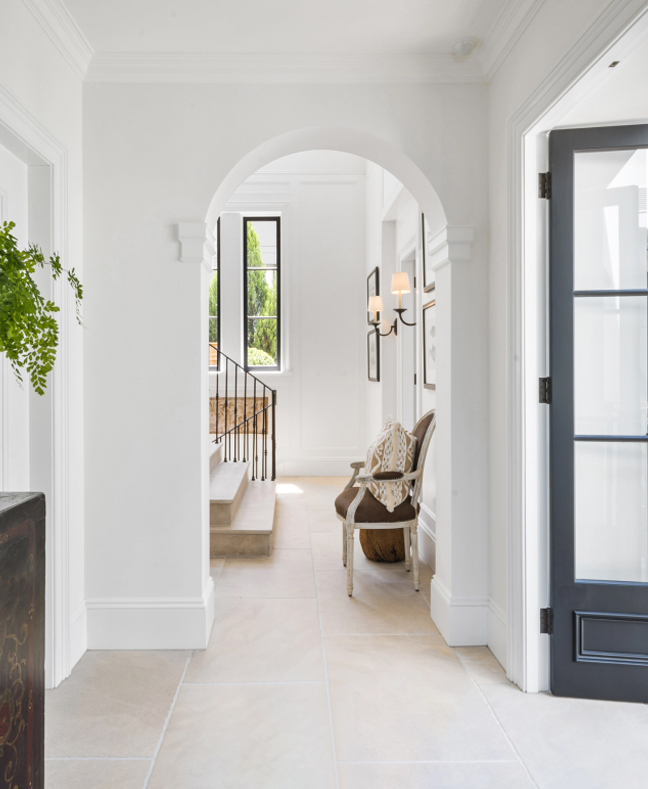Landscaping Basics: Your Essential Guide
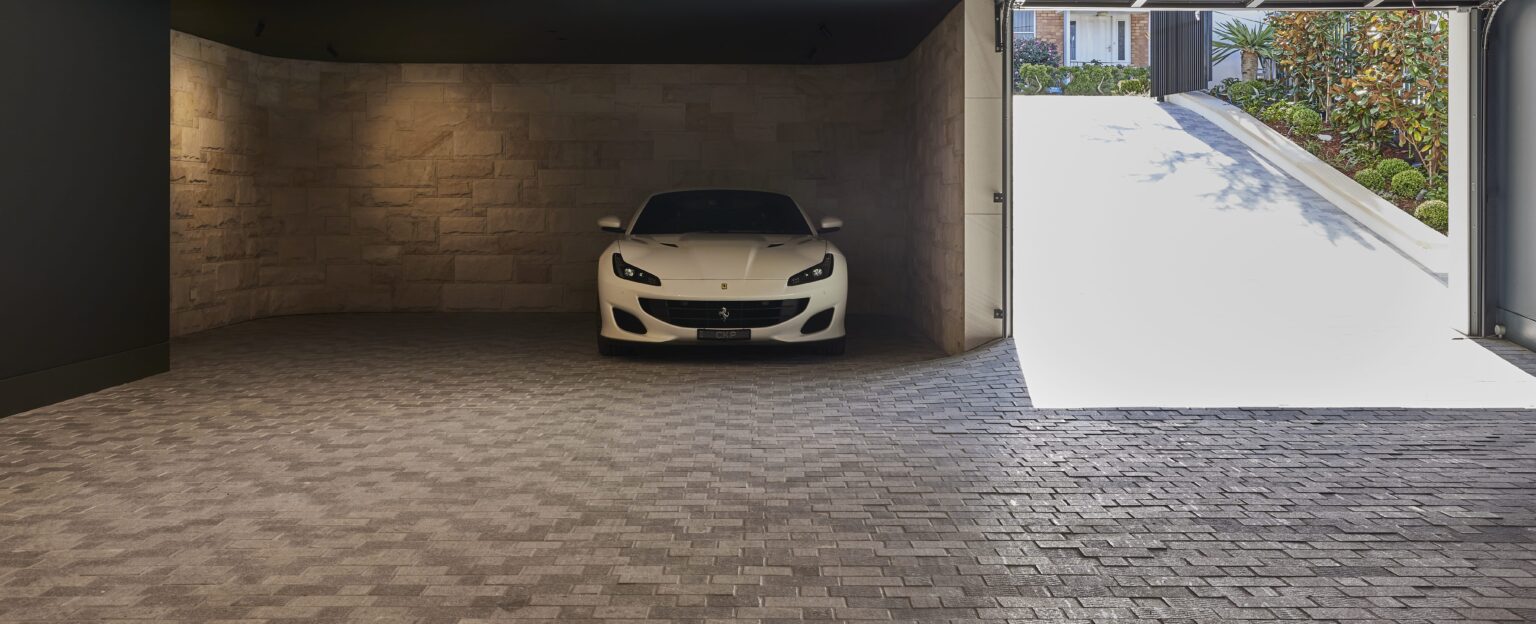 This comprehensive guide provides essential insights to help you choose the ideal natural stone cobblestones for your project.
This comprehensive guide provides essential insights to help you choose the ideal natural stone cobblestones for your project.Understanding and Choosing Natural Stone Pavers
Cobblestones, with their rich history and enduring appeal, continue to be a popular choice for modern paving projects. These small format stones, larger than pebbles but smaller than boulders, have been used for centuries in construction and decorative applications.
Historical Context and Durability
The use of cobblestones dates back 25 centuries to the Carthaginians and Romans, who sought to create roadways that were quick to construct and long-lasting. Many European towns and cities still showcase cobblestone streets that have withstood heavy traffic for centuries. This longevity is a testament to the durability and practicality of natural stone cobblestones.
What are Cobblestones?
Cobblestones are natural stone building materials used in paving streets, roads, and driveways and in constructing and decorating buildings, walls, and fireplace hearths. Like other natural stone options, cobblestones offer several advantages:
- Excellent load distribution: The nature of cobblestones helps spread weight evenly, reducing wear in high-traffic areas.
- Easy installation and low maintenance.
- Longevity in high-traffic areas.
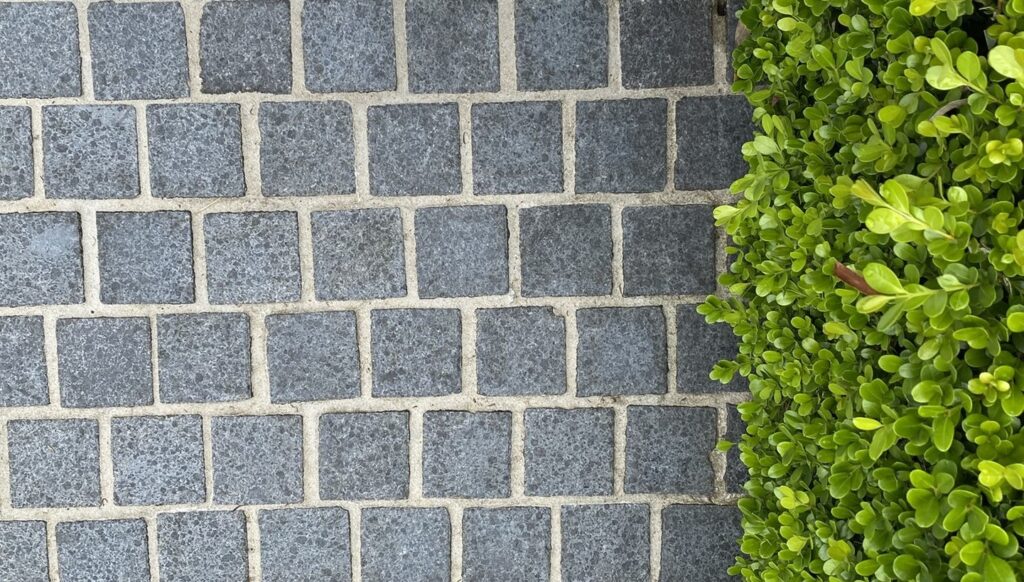
Modern Applications and Stylish Appeal
Today, cobblestones are prized not only for their durability but also for their aesthetic value. They are ideal for residential and commercial projects, particularly in:
- Cobblestone driveways.
- Pathways in front and backyards.
- Unique driveway patterns.
Cobblestones are often considered an “upmarket” solution, adding charm and character to any property. They’re trendy among homeowners looking to enhance the aesthetic of their outdoor spaces, similar to how limestone pavers or travertine tiles might be used.
Materials and Types
Modern cobblestones are often made from durable natural stone like granite and quartzite, which contribute to their longevity and aesthetic appeal. At Sareen Stone, we offer a diverse range of cobblestones to suit various design preferences and project requirements:
Autumn Blend Quartzite Cobblestones
A mix of warm colours that bring a cosy, autumnal feel to outdoor areas.
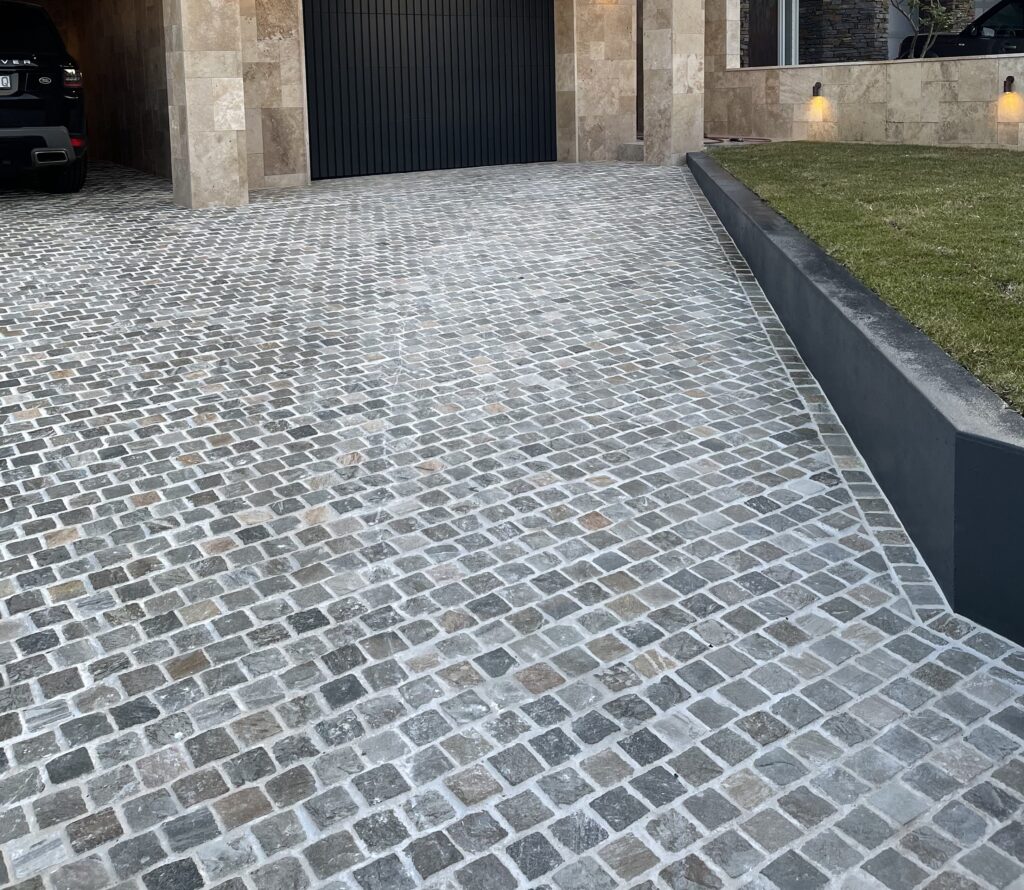
Charcoal Granite Cobblestones
Our best-selling option is available in a sophisticated grey flamed finish.
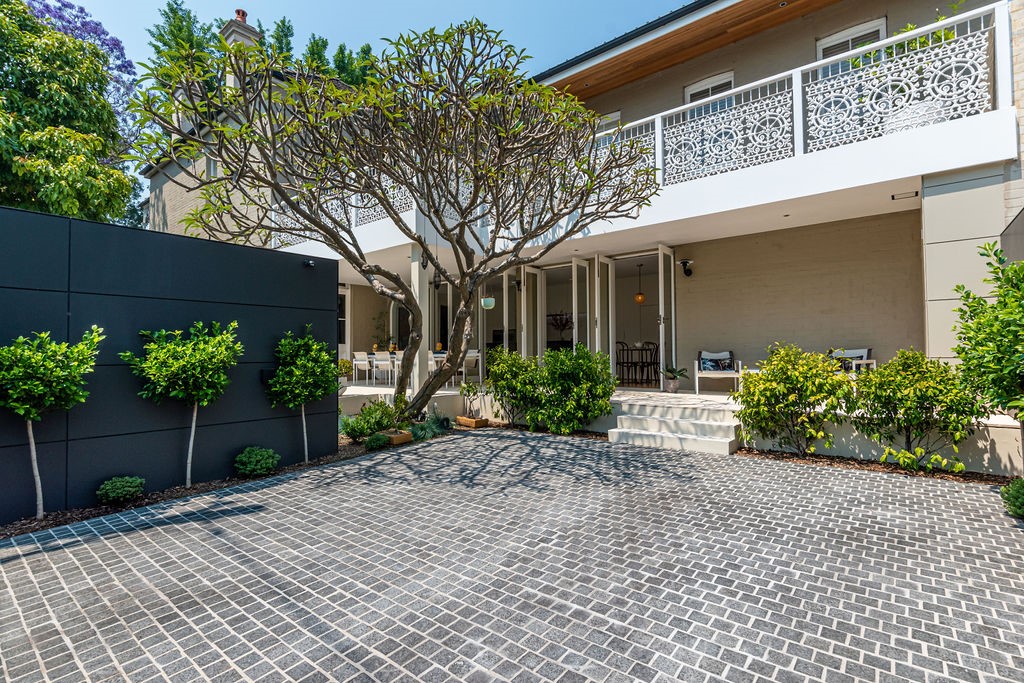
Charcoal Granite Rectangle Cobblestones
A variation on our popular charcoal granite, offering a more structured, linear look.
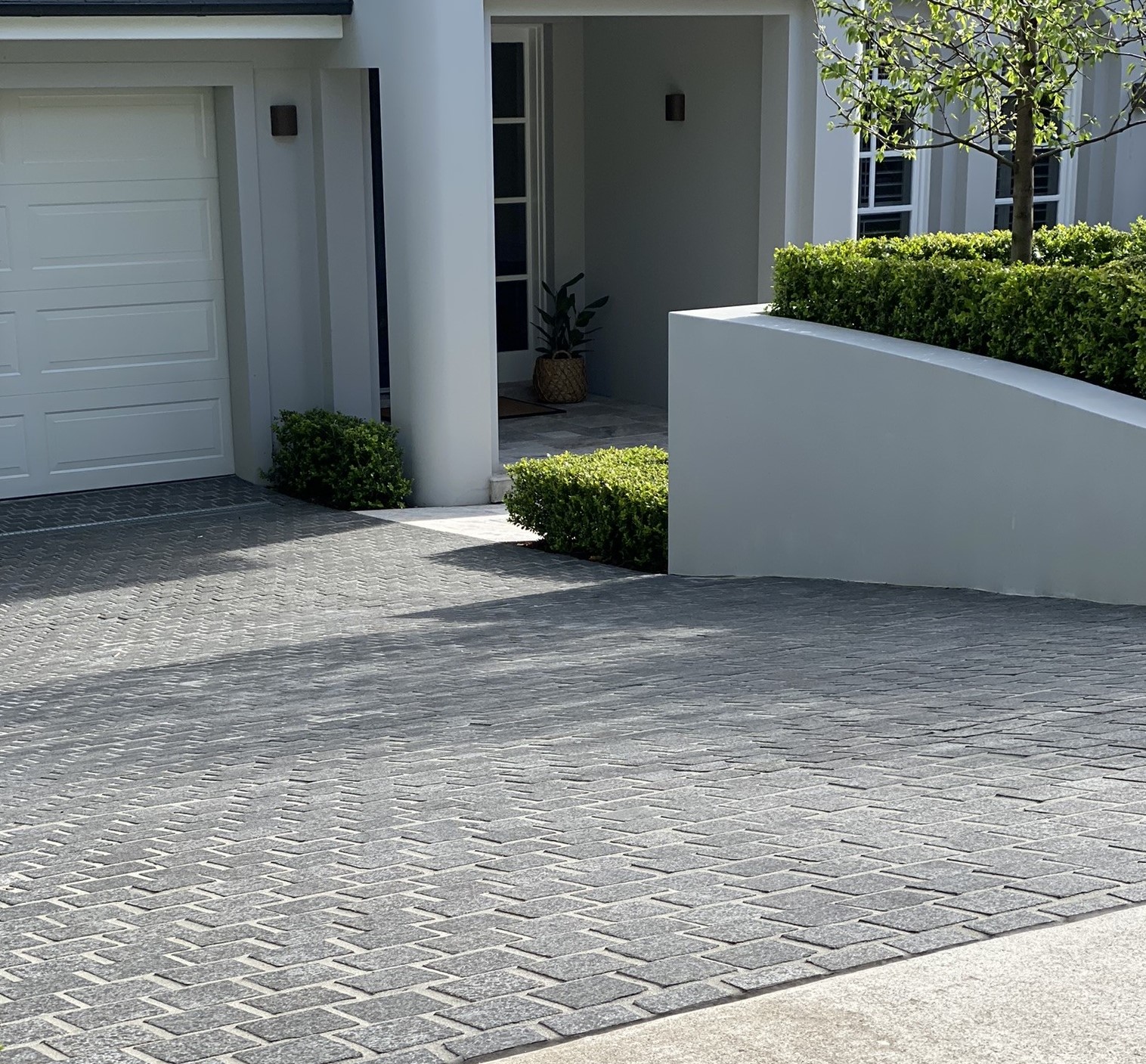
Desert Sand Granite Cobblestones
Perfect for creating a light, airy feel in your outdoor spaces. Offering a soft sandy colour with dark & light intrusions.
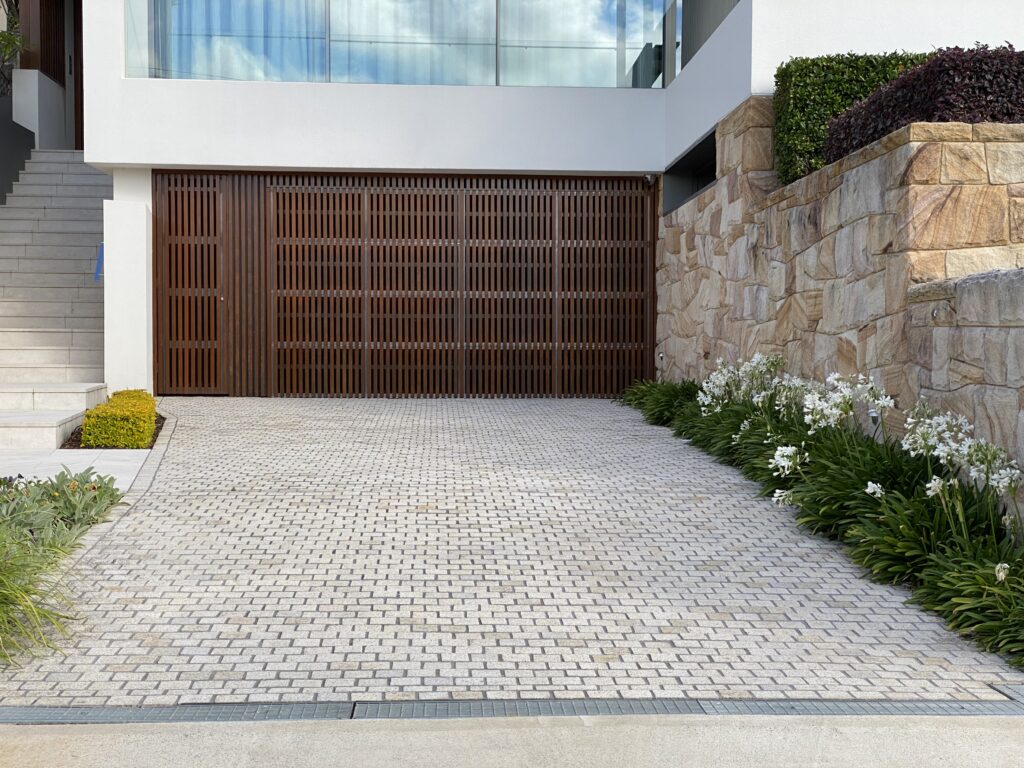
Porphyry Two Colour Mix Cobblestones
An eye-catching option that adds depth and interest to your paving with its dual-colour blend.
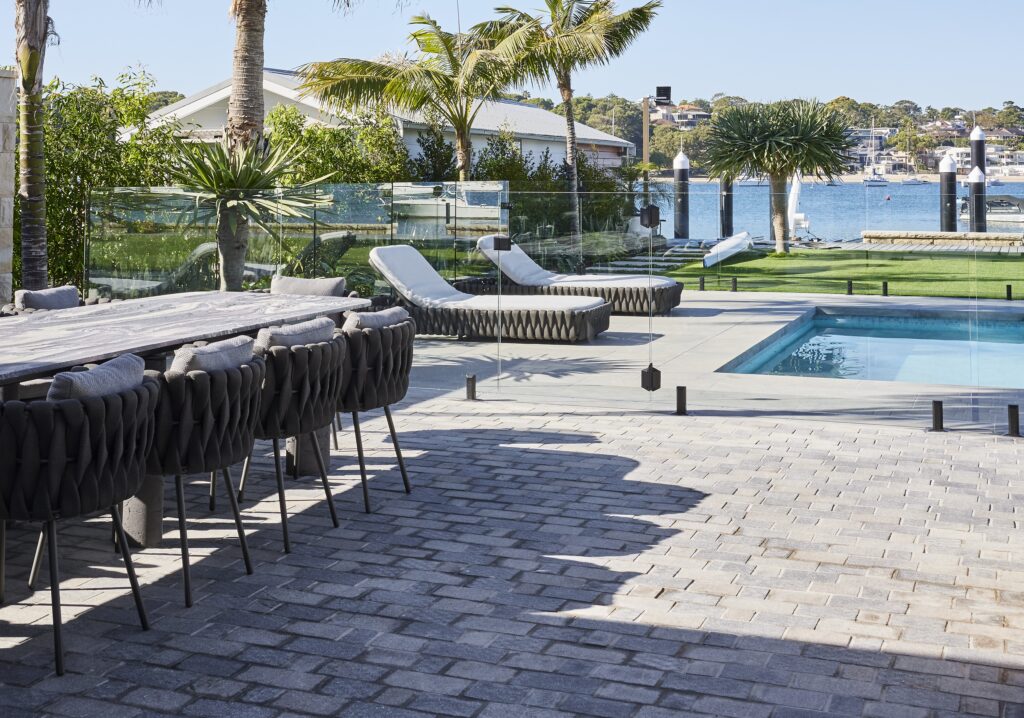
Photographer: Pablo Viega
Silhouette Grey Granite Cobblestones
An elegant mid-grey coloured stone that complements a wide range of design styles.
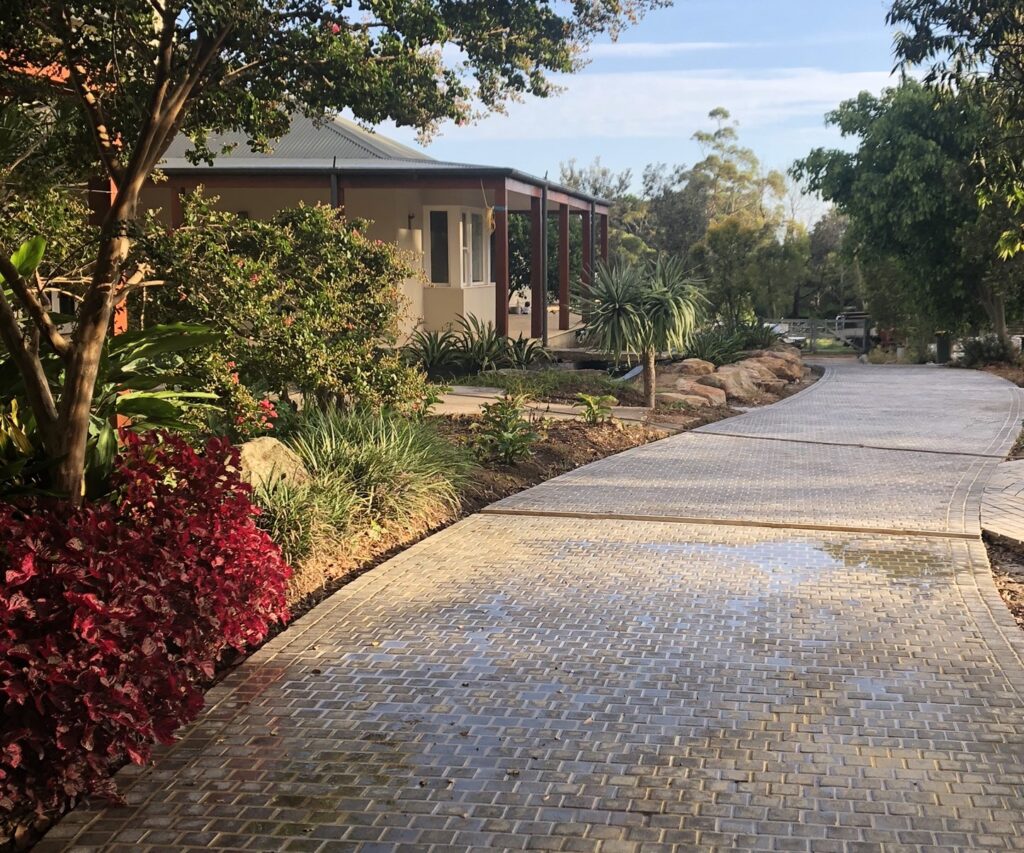
Filetti
A traditional European paving format featuring long, thin pieces of Porphyry stone. Our Italian Filetti combines earthy grey, brown, and plum tones, offering an alternative to conventional cobblestones while maintaining similar durability and versatility for driveways, patios, and paths.
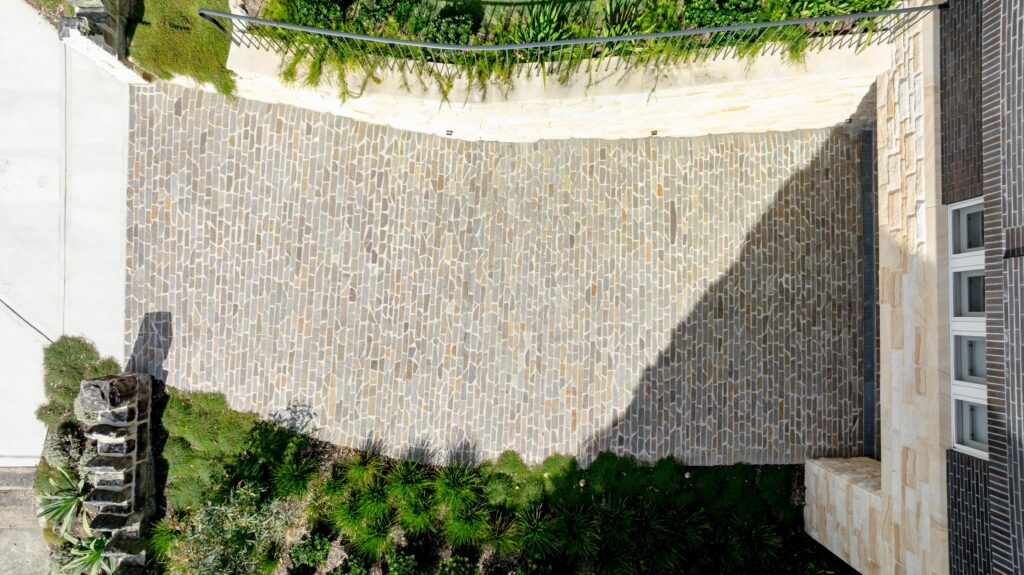
Photographer: Bolt Media
Each type of cobblestone in our range offers unique characteristics, allowing you to choose the perfect option for your specific project needs. Whether you’re looking for a uniform look or a more varied, natural appearance, our selection of cobblestones can help you achieve your desired aesthetic while ensuring durability and functionality.
Benefits of Cobblestones
Cobblestones stand out in the world of natural stone paving for their exceptional combination of practical benefits and aesthetic appeal. Their proven track record across centuries of use demonstrates several key advantages:
Durability: These natural stone cobbles show remarkable resilience in withstanding heavy traffic and harsh weather conditions, making them a long-lasting choice for any installation. Their natural hardness ensures they maintain their beauty and functionality for generations.
Load Distribution: The structure of cobblestones helps spread weight evenly across the surface, significantly reducing wear in high-traffic areas and ensuring long-term stability. This makes them particularly valuable in driveways and commercial spaces.
Low Maintenance: Once properly installed, cobblestones require minimal upkeep to maintain their appearance and functionality. Their natural durability means they resist weathering, staining, and general wear, reducing the need for frequent maintenance or replacement.
Weather Resistance: Cobblestones demonstrate excellent resilience against various weather conditions, from intense heat to freezing temperatures. Their natural composition allows them to withstand environmental stresses while maintaining their structural integrity.
Aesthetic Versatility: Beyond their practical benefits, cobblestones offer remarkable design flexibility. Their natural beauty and variety of available colours, textures, and patterns make them suitable for both traditional and contemporary design schemes.
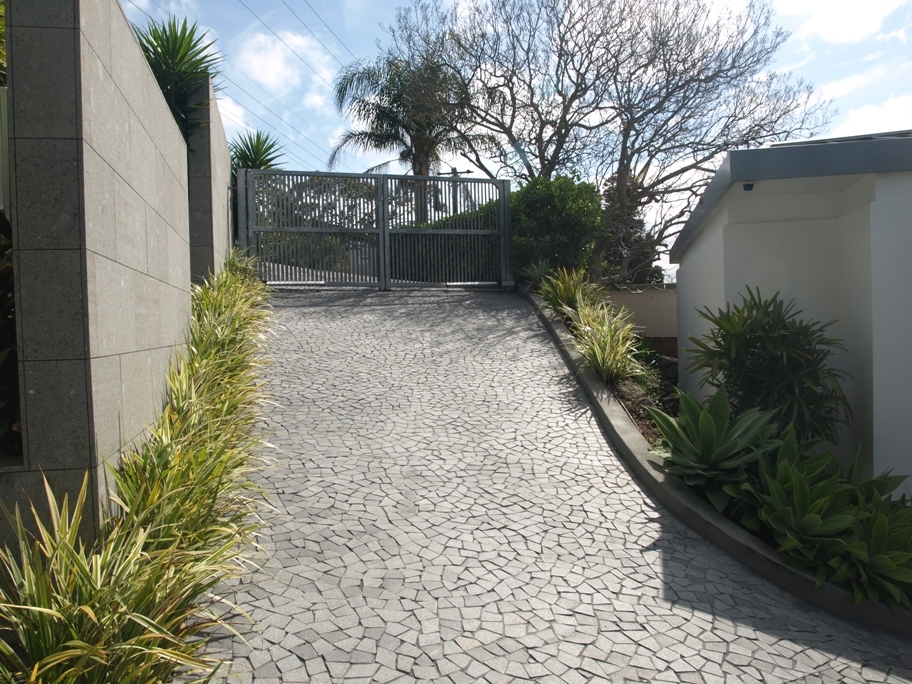
Versatility of Cobblestones
Cobblestones showcase their remarkable versatility across a wide range of applications, from classic residential projects to innovative commercial spaces.
In residential settings, cobblestones transform properties by creating grand entrances with patterns ranging from traditional to contemporary driveways, designing charming garden walkways that complement landscaping, and crafting elegant outdoor living spaces with timeless appeal in courtyards. They provide safe, slip-resistant surfaces, define spaces with decorative property borders, and create durable and stylish outdoor entertainment areas.
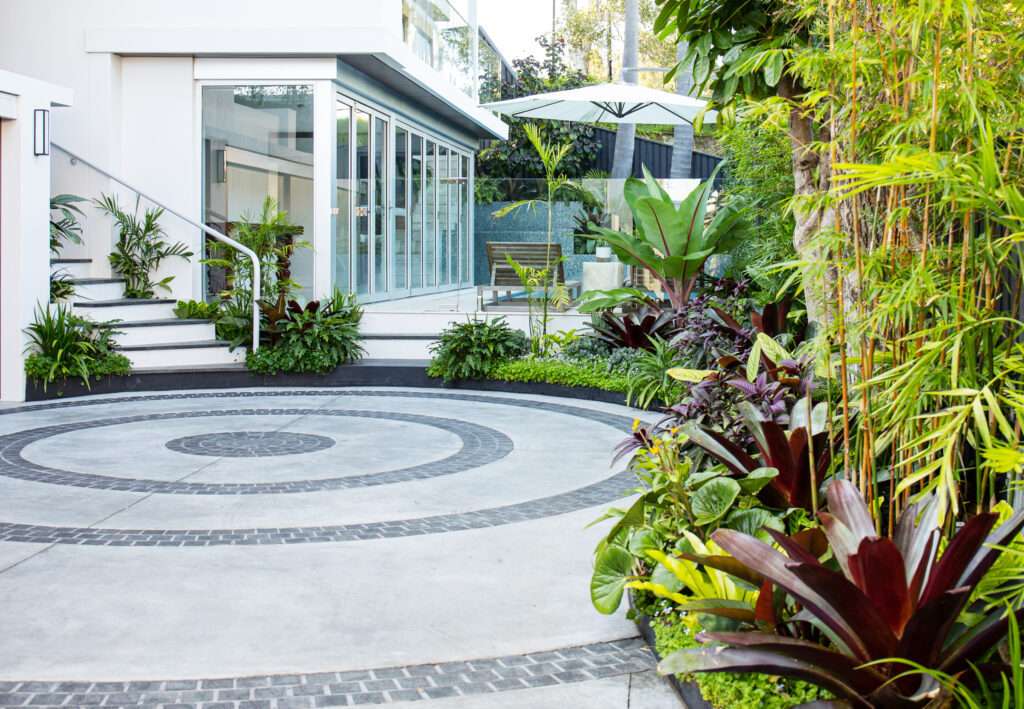
In commercial applications, cobblestones prove equally versatile, creating inviting community spaces in public plazas and designing atmospheric outdoor dining areas in restaurant courtyards. They make memorable first impressions at hotel entrances while maintaining historical authenticity in heritage buildings. Shopping precincts are enhanced with their presence, office building surrounds gain professional sophistication, and commercial landscapes benefit from the focal points created by these versatile stones.
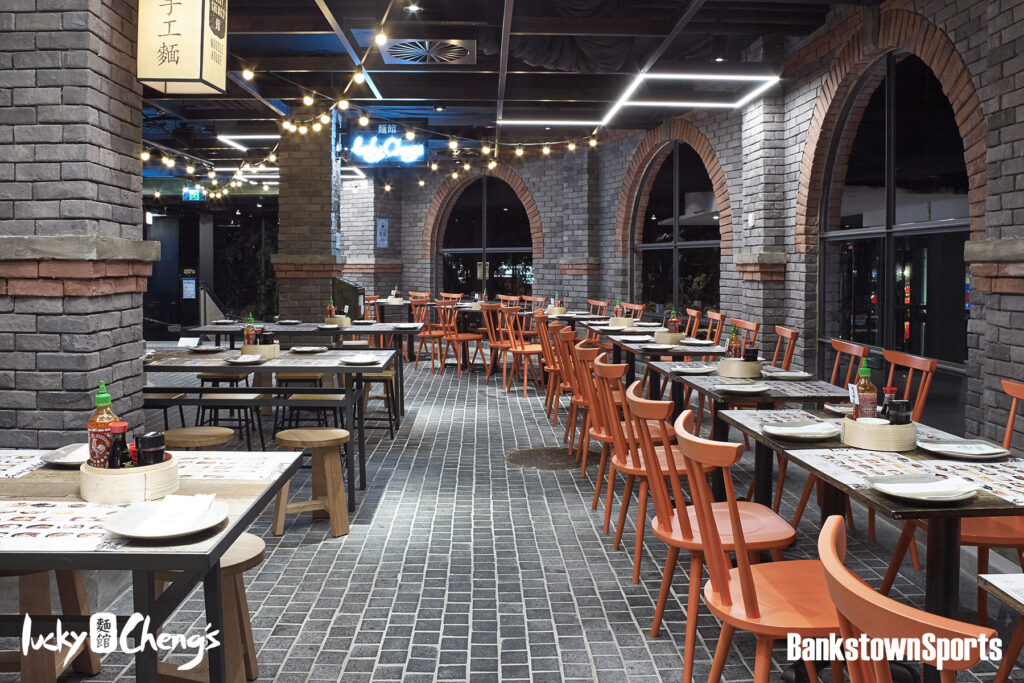 Byron Martin Photography
Byron Martin PhotographyIndoor applications of cobblestones are becoming increasingly popular, particularly in spaces seeking to create unique character and ambience. From bustling indoor markets to atmospheric restaurants, cobblestones bring a distinctive touch to interior spaces. Notable examples include the rustic charm they bring to restaurant floors, where they create an authentic European ambience, and their successful implementation in indoor market spaces, where they provide both durability and aesthetic appeal while connecting interior spaces with outdoor traditions.

Types of Cobblestones: Understanding Natural Stone Varieties
When selecting cobblestones for a project, three natural stone varieties stand out for their exceptional qualities: granite, porphyry, and quartzite. Each offers unique characteristics that make them ideal for different applications in modern landscaping and architectural design.
Granite Cobblestones
Granite cobblestones represent a cornerstone of durable paving solutions. Their exceptional hardness makes them remarkably resilient in high-traffic areas, while their diverse colour palette, ranging from light greys to deep reds and blacks, offers versatility in design.
These cobblestones excel in weather resistance, handling extreme temperatures and moisture without degradation.
Their natural texture provides excellent slip resistance, making them particularly suitable for driveways and walkways.
Perhaps most notably, granite’s dense composition results in low porosity, ensuring superior stain resistance and minimal maintenance requirements.
Porphyry Cobblestones
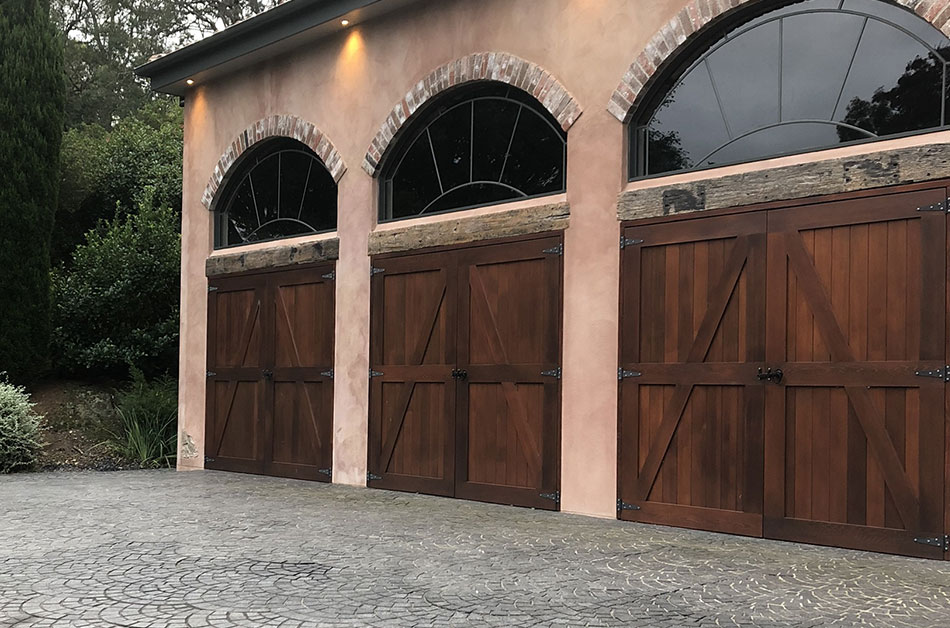
Porphyry brings a distinctive character to paving projects through its rich textures and warm colour variations. This stone type features a mix of grey and earthy tones of brown, red, and purple, creating a naturally rustic appearance that suits both historical and contemporary settings.
Beyond its aesthetic appeal, porphyry demonstrates impressive durability for outdoor applications. Its environmentally conscious extraction and processing, requiring no chemical treatments, make it a sustainable choice.
The stone’s naturally uneven surface provides enhanced traction in wet conditions, addressing both safety and design considerations.
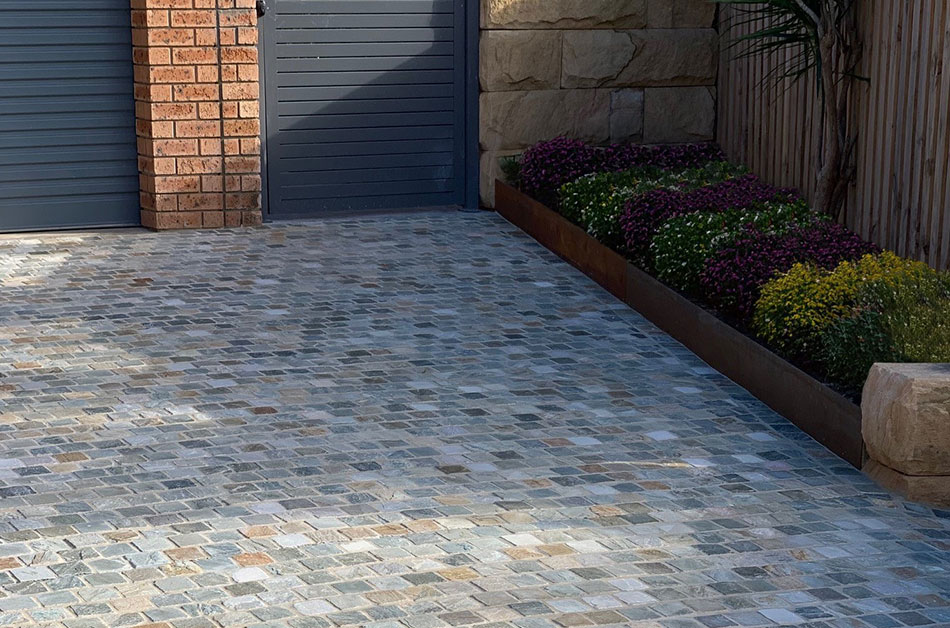
Quartzite Cobblestones
Quartzite stands out for its exceptional hardness, surpassing even granite in its resistance to wear. This remarkable durability, combined with high resistance to chemicals and weather exposure, makes it an excellent choice for demanding outdoor environments.
Aesthetically, quartzite offers sophisticated lighter hues, including whites, greys, and soft pastels, perfect for creating elegant outdoor spaces.
Its low porosity ensures lasting beauty with minimal maintenance, while its smooth yet durable surface makes it particularly suitable for luxury projects.
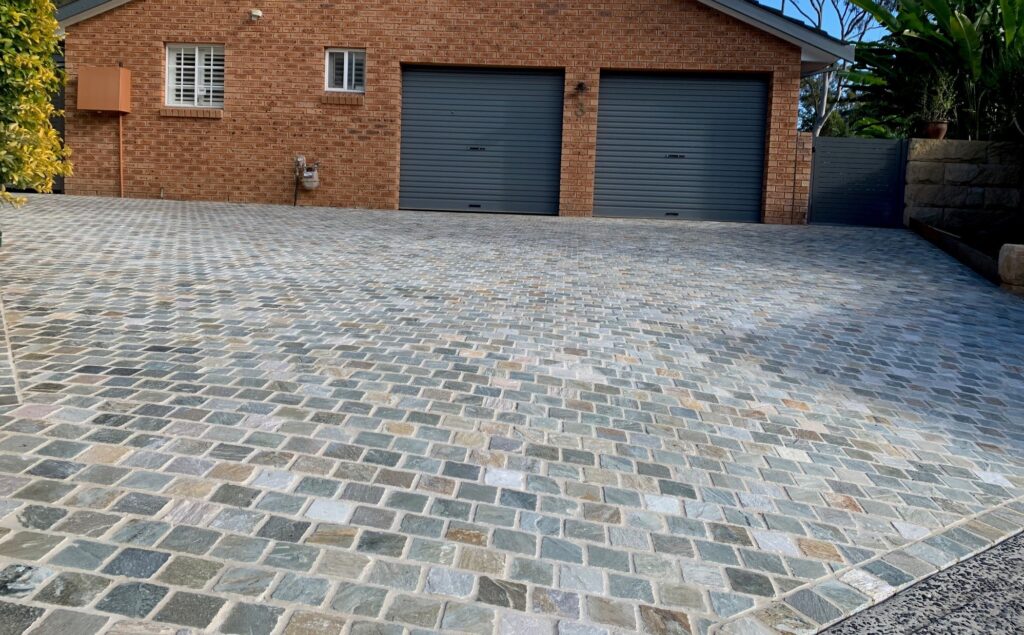
Understanding the Differences
The choice between these materials often depends on specific project requirements. Granite offers the broadest colour range and excellent all-around performance. Porphyry excels in creating character-rich, traditional appearances with its textural variety. Quartzite provides superior durability with a refined, contemporary aesthetic.
While granite and quartzite typically suit modern design schemes, porphyry often finds its place in projects seeking a more historical or rustic ambience. Each stone brings its unique combination of practical benefits and aesthetic qualities, allowing designers and property owners to select the perfect material for their specific needs.
Modern Advancements
When planning to renovate your outdoor spaces, you might wonder: Do I need a landscape designer? While DIY enthusiasts may be tempted to tackle the project, hiring a professional landscape designer offers numerous benefits.
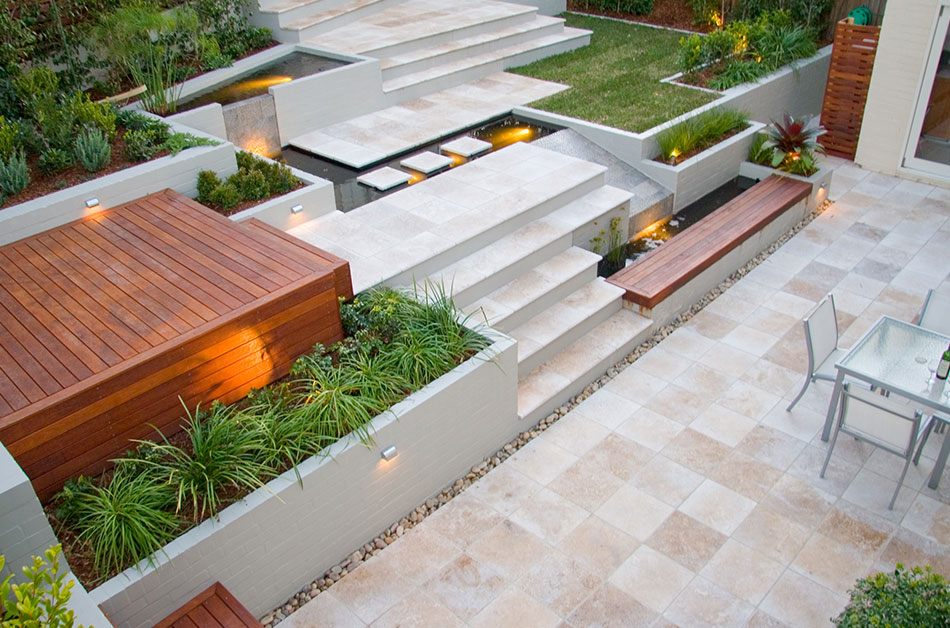
This comprehensive guide explores the essential information you need to consider when deciding whether to hire a landscape designer or tackle your landscaping project independently.
We delve into the key factors that influence the decision-making process, helping you make an informed choice that aligns with your goals and preferences.
What’s Involved in a Landscape Design
A Landscape design includes a complete approach to creating beautiful and functional outdoor spaces. It involves:
Site Analysis
Assessing the existing conditions of your property, including soil type, sunlight exposure, drainage, and potential issues.
Design Planning
Develop a tailored plan that incorporates your goals, preferences, and the unique characteristics of your site. A landscape design also includes paving, swimming pools, retaining walls, driveways, outdoor patios, pergolas, decks, cabanas, firepits, BBQ areas, fencing, and lighting.
Material Selection
Choosing appropriate hardscape elements such as limestone tiles, travertine stone, porcelain pavers, or cobblestones for features like driveways, outdoor patios, and walkways.
Soft Elements
Considering plants, trees, and soil fertilizers, which may require seasonal care, nutrients, water, and protection from pests and diseases.
Holistic Approach
Ensuring the design seamlessly integrates with your building and interiors, creating a cohesive and visually appealing outdoor space.
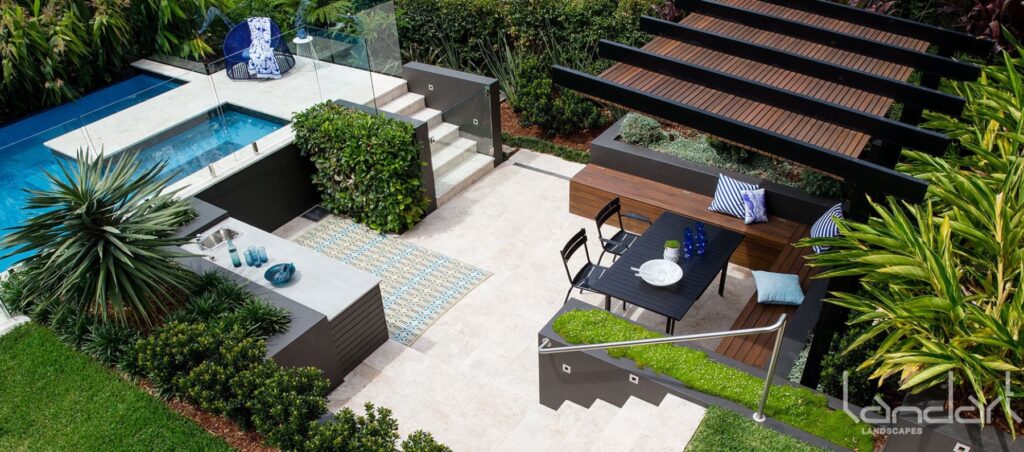
Classic Travertine Tumbled | Landart Landscapes | Castle Cove Residence
Understanding the Professionals: Landscape Designer, Landscape Architect, and Landscaper
When planning an outdoor project, it’s important to understand the different roles of professionals in the landscaping industry. Each brings unique skills and expertise to create and maintain beautiful outdoor spaces.
Landscape Designer
A landscape designer is a professional who plans and creates outdoor spaces. Their responsibilities include:
- Developing detailed landscape plans.
- Selecting appropriate plants and materials.
- Designing hardscape elements (patios, walkways, etc.).
- Considering drainage and irrigation needs.
- Ensuring the design complements the architecture, environment, and lifestyle.
- Providing cost estimates and project timelines.
Landscape designers focus on creating beautiful, functional outdoor spaces that meet your specific needs and preferences.
Landscape Architect
Landscape architects are highly qualified professionals who play a fundamental role in shaping public spaces, and overseeing large-scale landscape projects. They have additional training and licensing, and their key responsibilities include:
- Develop comprehensive plans for large-scale projects, considering factors like land use, sustainability, and community needs.
- Conducting complete assessments of project sites to identify opportunities and challenges.
- Creating detailed landscape designs that incorporate elements such as water features, pathways, and vegetation.
- Evaluate the potential environmental effects of a project and propose mitigation measures.
- Incorporating sustainable practices and materials into landscape designs to minimise environmental impact.
- Work closely with other professionals, such as architects, engineers, and planners, to ensure a cohesive project outcome.
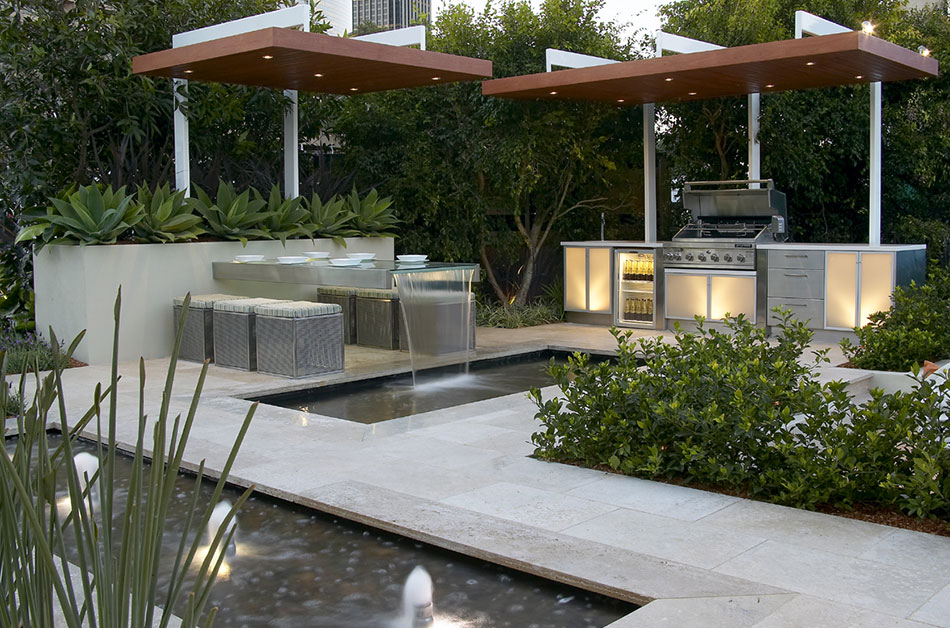
Coliseum Travertine | Rolling Stone Landscapes | Sydney In Bloom
Landscaper
Landscapers, also known as landscape contractors, bring the design to life. Their tasks include:
- Planting trees, shrubs, and flowers.
- Constructing hardscape features (such as patios, retaining walls, feature walls, etc.).
- Grading and preparing soil.
- Install irrigation systems.
- Provide ongoing maintenance (mowing, pruning, fertilizing).
While landscape designers and architects create the vision, landscapers make it a reality and keep it looking great.
Some landscaping companies offer design and construction services, providing a seamless experience from concept to completion. When considering your project, think about whether you need help with just the design, construction, or both aspects of landscaping.
Benefits of Hiring a Landscape Designer: Do I Really Need One?
Tailored Design
A good landscape designer will create a plan that fits your specific needs, lifestyle, and aesthetic preferences. Whether you want a low-maintenance garden, an outdoor entertainment area, or a swimming pool, they can design a space that works for you.
Comprehensive Planning
Landscape design is more complex than many realise. A professional designer will consider factors such as:
- Site analysis and problem-solving.
- Maximising the site for sun and shade.
- Drainage and soil conditions.
- Local climate and appropriate plant selection.
- Selecting appropriate paving materials and natural stone finishes.
- Privacy and neighbour considerations.
- Functional design with good flow and access.
- Privacy and Site access.
Cost-Effective Solutions
While hiring a designer is an upfront cost, it can save money in the long term by:
- Avoiding costly mistakes.
- Efficiently allocating your budget.
- Preventing the need for future redesigns.
- Choosing appropriate, long-lasting materials and plants.
Increased Property Value
Professional landscaping can significantly increase your home’s value. Some experts suggest that good landscaping can boost property value by 15-20%, making it a worthwhile investment.
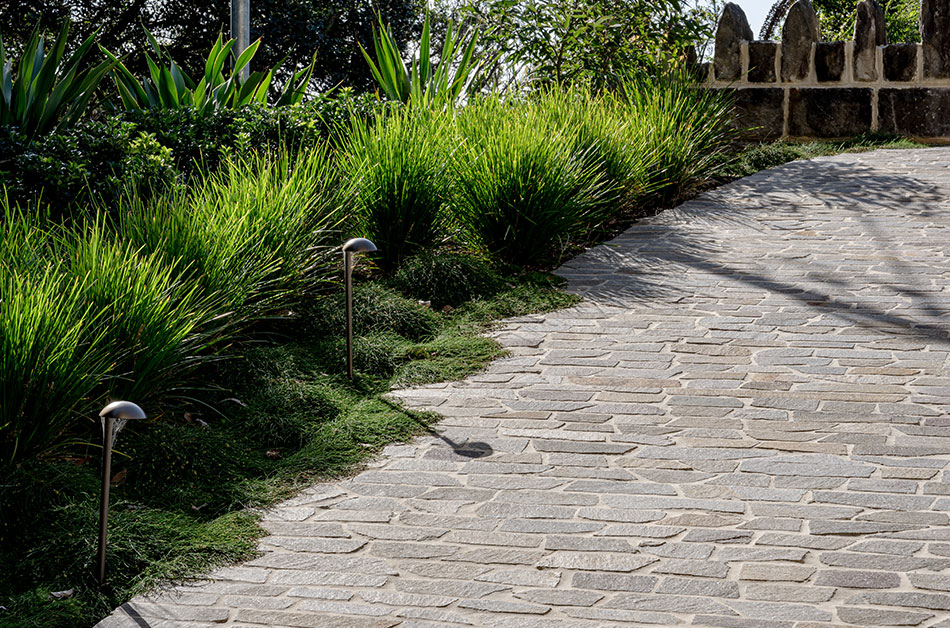
Manhattan Alfresco Limestone | Branch Out Landscape Design | Project in Killara
Expert Knowledge
Landscape designers bring years of experience and knowledge to your project. They stay updated on trends, materials, and best practices in the field, including the latest in natural stone options for outdoor spaces.
Timesaving
Designing and implementing a landscape plan is time-consuming. A professional can streamline the process, saving you valuable time and effort.
Realistic Expectations
Designers can help align your vision with what’s possible given your space, budget, and local conditions. They can also provide realistic timelines for project completion.
Comprehensive Documentation
A landscape designer will provide detailed plans and documentation, which are fundamental for:
- Obtaining accurate quotes from contractors.
- Guaranteeing clear communication with installers.
- Potential permitting processes.
- Liaising with councils.
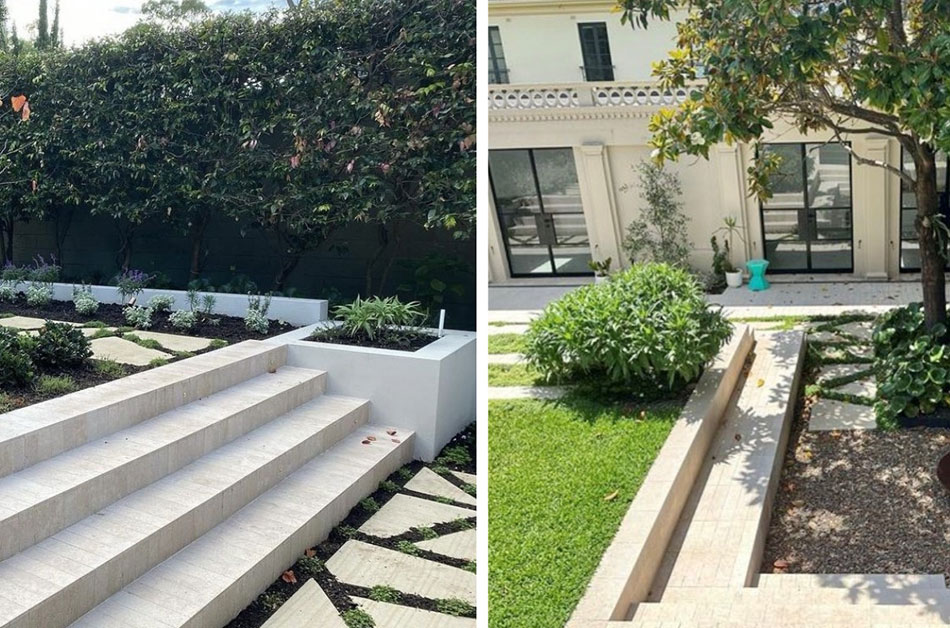
Lavarosa Alfresco Limestone | Starr Landscapes | Project in Randwick
When You Could Manage Without a Landscape Design
While landscape designers offer many benefits, there are situations where you might choose to waive their services:
- Small, simple projects (e.g., adding a few plants to an existing bed).
- If you have significant landscaping experience yourself.
- When budget constraints are extremely tight.
However, even in these cases, a consultation with a designer can provide valuable insights.
Cost Considerations
The cost of hiring a landscape designer varies based on their level of involvement, which can range from basic design and colour palette selection to full project management.
The cost requirements vary based on the project’s scope, complexity, and weather conditions.
